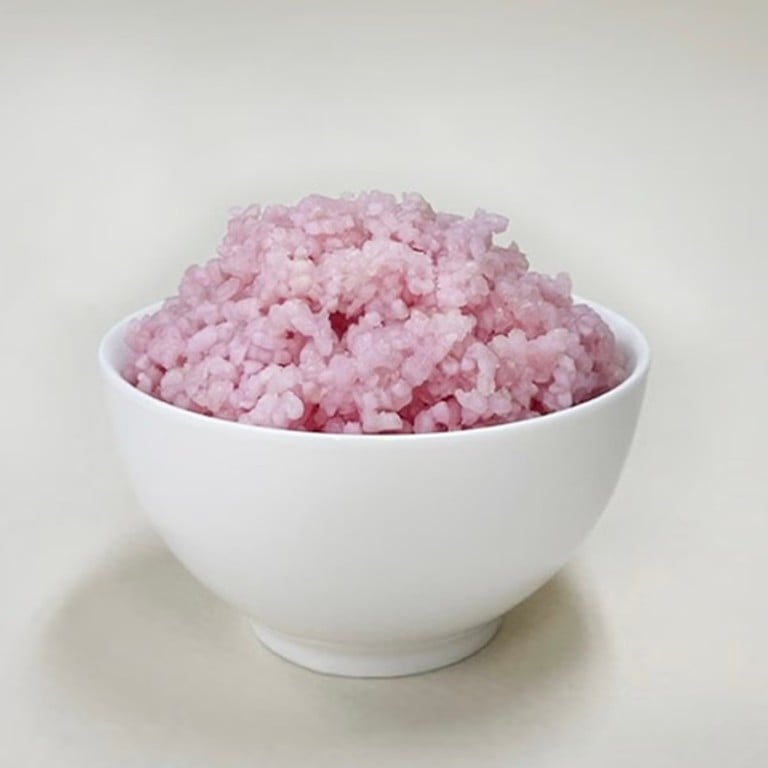![]() The meat-rice hybrid is an alternative protein source that has a much lower carbon footprint than normal beef. Photo: SCMPOST/Yonsei University
The meat-rice hybrid is an alternative protein source that has a much lower carbon footprint than normal beef. Photo: SCMPOST/Yonsei University
Fri 16 February 2024:
In an innovative development for cultured meat and staple foods, Korean researchers have introduced beef-infused rice.
Produced by coating rice grains with animal cells and raising them in laboratory dishes, this “nutritious and flavorful” invention has higher fat and protein content and may provide an inexpensive and sustainable supply of protein.
Published in the journal Matter on Wednesday, the study describes rice as having a lower carbon footprint and less resource-intensive than traditional beef production.

Scientists in South Korea have grown beef cells inside grains of rice in a bid to create food that is cheaper and more eco-friendly than real cuts of meat. Photo: SCMPOST/Yonsei University
“For every 100g (0.2 pounds) of protein produced, hybrid rice releases less than 6.27kg (15 pounds) of CO2, while beef releases 49.89kg,” said lead researcher Sohyeon Park. It translates to a significant environmental benefit.
Cost-wise, scientists predict commercialized hybrid rice could cost $2.23 per kilogram, compared to the current $14.88 for beef.
Park envisions diverse applications, from “famine relief and military rations to even space food.”
But the research is still in its early stages. Additional studies are needed to assess taste, scalability and consumer acceptance before beef-infused rice becomes a reality on our plates.
The innovative concept offers a promising glimpse into the future of sustainable and accessible protein sources.
These lab-grown rice have more protein than regular rice or regular beef, and their making process is also way cleaner than regular food.
As compared to regular beef, hybrid rice has a smaller carbon footprint, as its production method eliminates the need to raise and farm a lot of animals, according to the research team.
Researcher Sohyeon Park explained, “We usually obtain the protein we need from livestock, but livestock production consumes a lot of resources and water and releases a lot of greenhouse gas.”
“Imagine obtaining all the nutrients we need from cell-cultured protein rice.
“Rice already has a high nutrient level, but adding cells from livestock can further boost it,” Park further said.
So basically, hybrid rice is not only a better source of protein but is also much more eco-friendly as compared to regular sources. Park said if this experiment went down well with consumers, it could open the possibility for more such “grain-based hybrid food”.
This is not the first time though that a team has explored lab-grown meat products. In 2013, a team from London made the first lab-grown burger. Singapore also recently started the world’s first cultivated chicken product for consumers.
SOURCE: INDEPENDENT PRESS AND NEWS AGENCIES
______________________________________________________________
FOLLOW INDEPENDENT PRESS:
WhatsApp CHANNEL
https://whatsapp.com/channel/0029VaAtNxX8fewmiFmN7N22
![]()
TWITTER (CLICK HERE)
https://twitter.com/IpIndependent
FACEBOOK (CLICK HERE)
https://web.facebook.com/ipindependent
Think your friends would be interested? Share this story!





